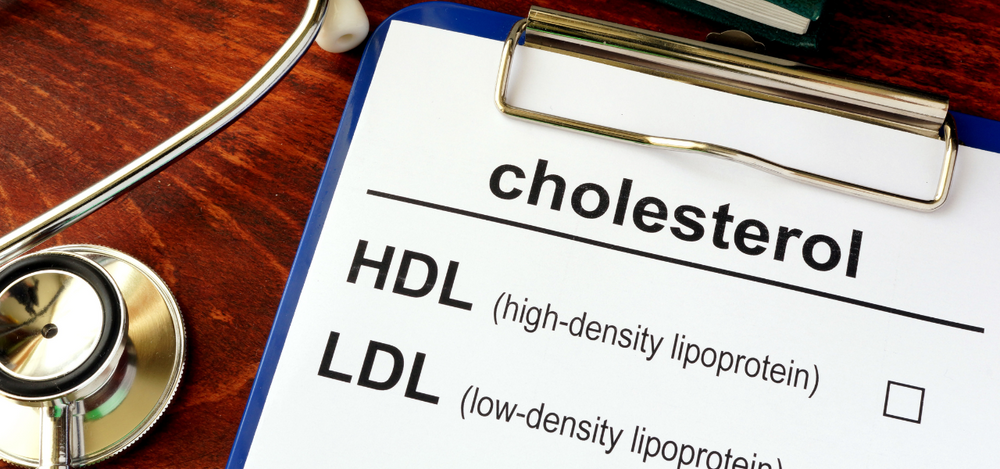Understanding HDL: Why 'Good' Cholesterol Matters

Cholesterol management often emphasizes keeping numbers low, but not all cholesterol is created equal. While LDL clogs arteries and contributes to heart disease and we want to keep it low, HDL is more closely tied to overall health, and is inversely related to heart disease risk. Here's what you need to know about HDL, why it’s important, and how to naturally raise its levels.
The Difference Between LDL and HDL
Cholesterol comes in different forms, each impacting your health differently:
- LDL (Low-Density Lipoprotein): Known as “bad” cholesterol, LDL accumulates on artery walls, leading to activity-limiting blockages and an increased risk of heart attack and stroke. LDL should fall below 130 mg/dL in everyone, under 100 mg/dL in those with other risk factors for heart disease, under 70 mg/dL in those with established heart or vascular disease, and under 50 mg/dL in very high-risk individuals with multiple or very early heart events.
- HDL (High-Density Lipoprotein): This “good” cholesterol acts like a cleaning crew, transporting cholesterol from the body back to the liver for processing and elimination. Higher levels of HDL are associated with a lower risk of heart disease. HDL should fall above 40 mg/dL in men and above 50 mg/dL in women.
Why HDL is Important
HDL’s reputation as “good” cholesterol is well-earned. Higher levels of HDL have long been linked to reduced cardiovascular risk. While the relationship between HDL and heart health is complex—more correlative than causative—HDL remains a key marker in assessing cardiovascular risk.
Rather than just being a heart-related risk factor, HDL is perhaps more useful at shining a light on our overall metabolic health. Although very low HDL levels can be genetically driven, HDL levels just below normal cut-offs are often indicative of lifestyle factors that have gone off the rails. Excess weight, disturbed blood sugar control, inactivity and poor diet go hand in hand with reduced HDL numbers.
It’s this tight link to overall metabolic health that helps explain why medications that raise HDL have not panned out as significant modifiers of heart disease risk. Just making numbers look good - without addressing why they’re abnormal in the first place (sound familiar?) – is a proven failed strategy for HDL management.
How to Naturally Raise Your HDL
So what does work? Interventions that don’t need a prescription:
- Stay Active: Regular aerobic exercise—like walking, swimming, or dancing—can elevate HDL levels. Aim for at least 30 minutes a day, most days of the week. Strength training helps too – so remember to make that part of your exercise routine.
- Eat Heart-Healthy Fats: Incorporate more unsaturated fats, such as those found in olive oil, avocados, nuts, seeds and fish. These healthy fats help raise HDL, lower LDL, and are anti-inflammatory.
- Quit Smoking: If you smoke, quitting can quickly increase your HDL and enhance its protective function.
- Lose Excess Weight: For those who are overweight, shedding even a small percentage of body weight can improve HDL levels.
- Choose a Balanced Diet: Diets higher in healthy fats and complex carbohydrates can be more effective at raising HDL than low-fat diets higher in refined carbs.
Other Important Facts About HDL
Progressively higher HDL levels are not necessarily an indication of progressively better metabolic health. At some point, the indicator levels off in terms of its positive association – probably around 80 mg/dL. And above this level, genders appear to diverge. Women who achieve levels higher than this do not appear to gain much additional benefit. Men who achieve levels above 80 mg/dL may even see a slight uptick in risk. That’s probably because HDL is still carrying cholesterol around – and very high levels (specifically in men) may indicate a problem with cholesterol elimination.
A high HDL does NOT make up for a high LDL. You might be metabolically healthy or even genetically blessed with a high HDL, but if your LDL is high, it’s still a risk. HDL and LDL are distinct cholesterol particles that are relatively independent in both form and function. In some sense, when it comes to heart disease risk, HDL is only important if it’s low. LDL is linearly related to risk across the span of its values.
Finally, HDL can be hard to move. Even with meticulous attention to lifestyle drivers, HDL can stay frustratingly stuck. That does not mean lifestyle attempts are futile and should be abandoned – remember, heart disease is a multifactorial disease and doing your part in terms of lifestyle is key to risk reduction. But it does mean that going on defense and, instead, focusing on lowering LDL might need to take center stage.
And this is where Step One Foods can help. Although average HDL levels did go up in our clinical trial, the increase was not statistically significant. However, the LDL reduction was highly significant and swift - even eye-popping in some participants. Plus, the products deliver healthy fats, complex carbohydrates and can aid in weight in reduction. When it comes to HDL cholesterol, that’s a win, win, win, and win.

Tested & Proven Results.
- Cardiologist formulated
- Supported by over 500 publications
- Clinically-proven, in a double-blind randomized trial with Mayo Clinic and The University of Manitoba
80% of participants lowered their cholesterol in just 30 days. With just two servings per day, Step One Foods offers a proven-effective way to naturally lower LDL (bad) cholesterol.
Get heart health tips and articles like this, delivered right to your email.
New articles every week.
You may also like...

The Next Super Food: How Pecans Help Lower Cholesterol

You don’t need to avoid foods with cholesterol…except for these



